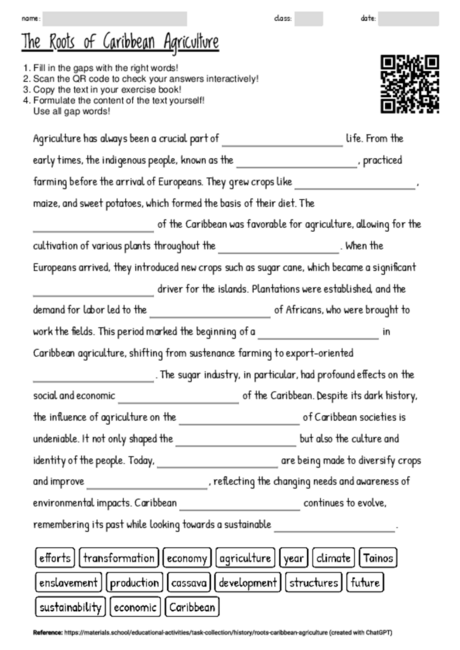The Roots of Caribbean Agriculture
Cloze texts like this one offer a variety of didactic benefits, especially for readers aged 12 to 16. They encourage students to engage actively with the content by filling in the gaps, promoting better retention of information. This method stimulates critical thinking as students must understand the context to identify the missing terms correctly. The topic of Caribbean agriculture and its historical context provides a comprehensive overview that integrates geography, history, and environmental science, making the learning experience interdisciplinary. By focusing on both the indigenous practices and the changes brought by European colonization, the text highlights the complexity of historical developments and their impact on societies. The emphasis on sustainability and current efforts to diversify crops introduces students to contemporary issues, linking the past with present challenges in agriculture. This text can serve as a springboard for discussions about the consequences of colonization, the importance of sustainable practices, and the cultural significance of agriculture in the Caribbean. Through this approach, students not only learn about a specific historical period but also develop a deeper understanding of the ongoing influences of past actions on current societal and environmental conditions.

